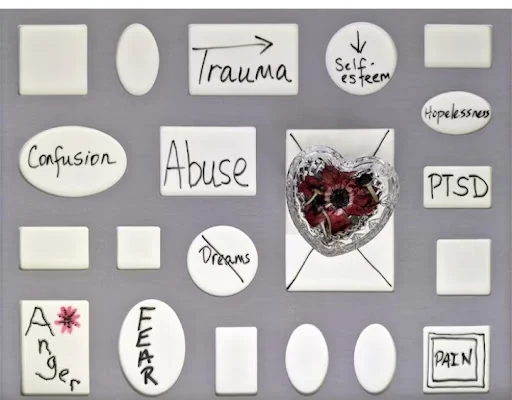EATING DISORDER CAUSES AND SOLUTION
Eating disorders are intricate conditions that intricately affect a significant number of individuals worldwide. These disorders are marked by irregular eating patterns and substantial distress concerning one's body weight and shape. While food remains central to these disorders, their impact goes well beyond mere dietary concerns. This article endeavors to delve into the fundamental causes of eating disorders and the diverse array of solutions available for their management.
1. Psychological Underpinnings
Eating disorders frequently find their origins in deep seated psychological factors. Elements such as diminished self-esteem, the relentless pursuit of perfection and an unfavorable perception of one's own body can contribute to the emergence of these disorders. For some controlling their food intake becomes a coping strategy for grappling with emotional turmoil.
2. Biological Elements
Genetic factors play a role in the development of eating disorders. A familial history of such disorders can elevate an individual's susceptibility. Additionally imbalances in hormones and irregularities in neurotransmitter function can profoundly affect one's relationship with food.
3. Environmental Influences
Societal pressures cultural norms and family dynamics exert substantial influence. The media often propounds unattainable body standards and societal expectations can exert considerable pressure on individuals to conform to these ideals.
4. Traumatic Experiences
Past traumas can drive some individuals to develop eating disorders as a means of regaining control. Restricting or binge-eating may serve as a coping mechanism when other aspects of life appear turbulent or painful.
Approaches to Addressing Eating Disorders
1. Therapeutic Interventions
Psychotherapy forms the bedrock of eating disorder treatment. Cognitive Behavioral Therapy (CBT) aids in the identification and transformation of detrimental thought patterns and behaviors. Dialectical Behavior Therapy (DBT) and interpersonal therapy also prove effective in addressing emotional issues and intricate relationship dynamics.
2. Medical Support
In cases of severe disorder medical intervention may become imperative. Individuals who suffer from severe undernourishment may necessitate hospitalization with healthcare professionals meticulously monitoring their physical health and providing necessary treatment.
3. Support Networks
Participation in support groups can prove an invaluable facet of the recovery process. Establishing connections with others facing similar challenges fosters a sense of community and mutual understanding.
4. Nutritional Guidance
Acquiring knowledge about balanced eating is pivotal. Registered dietitians can assist individuals in fostering a healthier relationship with food and devising sustainable meal plans that actively promote the journey towards recovery.
5. Medication Usage
While medication should not be viewed as a standalone solution for eating disorders. it may be prescribed especially when individuals simultaneously confront conditions like depression or anxiety. Medications can help manage these symptoms while the underlying issues are concurrently addressed through therapy.
Eating disorders are multifaceted conditions with diverse causes but they are amenable to treatment. Seeking assistance from healthcare professionals is indispensable for an accurate diagnosis and the formulation of a customized treatment plan that meticulously considers an individual's unique needs. Recovery from an eating disorder is attainable with the right support therapeutic approaches and a wholehearted commitment to healing both the mind and body. It is essential to recognize that early intervention and a robust support system can wield a profound impact on the journey towards recovery.












Comments
Post a Comment
Thanks